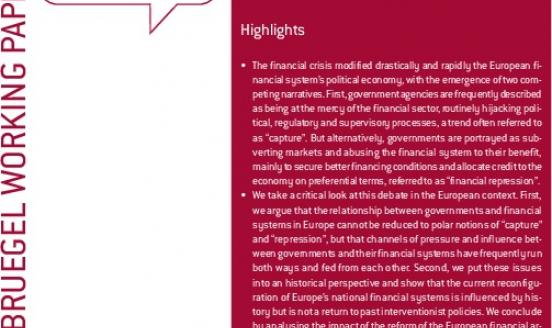The Weekender
Dear All,
In Germany, the elections in North Rhine-Westphalia (German’s most populous state and not Schleswig-Holstein as I mistakenly wrote last week, apologies for this…) brought a victory for the SPD and the Greens. The CDU collapsed to its post war low while the FDP surprisingly held up (around 8%) which, at the Federal level, should help keep the coalition together until the 2013 election. The pirates did a fairly strong showing at 7.5% and will enter the parliament in NRW but are lower than their recent national polls. These domestic political considerations will be important in future European negotiations and are likely to tilt Merkel towards a softer stance. In addition, with respect to domestic German developments, it is important to monitor domestic wages dynamics and the resumption of wage bargaining with IG Metall due to restart on May 15th. In this context, the speech by the Bundesbank chief economist Jens Ulbrich in the Bundestag on May 9th is particularly interesting and somewhat encouraging. It shows acceptance for a future with higher inflation in Germany: “adjustment processes will lead to an improvement of the competitiveness of peripheral countries vis-à-vis German. In this scenario, Germany should be expected to show inflation rates above the EMU average in the future, although monetary policy will have to ensure that inflation overall in the euro area is consistent with the objective of price stability”.
Meanwhile, in France, Hollande is preparing to take office on Tuesday (he will fly to Berlin on that very day) and announce his government on Wednesday. Attention has already turned to the May 23rd informal dinner of the European Council where the outline of the “Growth Compact“ ought to be negotiated. From what I understand, this outline is broadly consistent with what I wrote last week but there are important elements missing in particular with respect to Spain and Greece.
1. Spain and the way to a banking union
2. syriza needs a sensible European response
3. The path to Eurobonds
Spain and the way to a banking union
I published a short OpEd for La Razon this weekend where I basically argue that the new financial sector plan presented by the Spanish authorities (see their presentation attached) see their presentation attached is unsatisfactory. My main argument is that we are passed the point where Spain can solve its banking sector challenge on its own. The program is well designed and its cost could possibly be met. But confidence has slipped too low to give this plan a chance and the probability that its implementation will press the Spanish government’s borrowing cost to a level that challenges its very own debt sustainability.
As a result, Spain should rapidly request a European plan to restructure and recapitalize its banking system. Beyond Spain, this plan would set a precedent to design the contours of a banking resolution framework that could be institutionalized and applied across Europe following the Spanish experience.
In the short term, financial means are not the main challenge. The EFSF and the ESM can actually be used to this effect. Hence, even though it would be preferable if the EFSF/ESM could take equity stakes directly in the banks, with some financial engineering, the EFSF/ESM loans to the Spanish government could, be structured like quasi-equity stakes in the banking system.
What is key is the acceptance that the lenders will participate in the upside if the restructuring works as planned and more importantly and politically challenging that the lender will make losses over and above a certain threshold to ensure that the Spanish government doesn’t become insolvent if the banking sector restructuring ends up costing more than initially assumed. But this agreement doesn’t need to be absolutely explicit so long as it is understood as such by the different stakeholders and by financial markets. (Today, financial markets understand that there will be an official sector involvement in Greece at some stage even though this is still forcefully objected my most European policymakers)
Beyond the financial aspects, the main challenge really is to design a banking sector resolution/restructuring effort with the various stakeholders ensuring both effectiveness and accountability. The reality is that there should be a dedicated institution for this (a European FDIC lodged by the ESM for instance) but the other reality is that there is no time to create this new institution and Europeans have to work with bits and pieces of existing institutions and within the broad operational framework of an EFSF/ESM program.
The program should be designed and targeted specifically at the banking system and have no conditionality related to fiscal policy other than the current plan presented by the Spanish authorities (which will have to renegotiated). In this program:
· The ECB and the EBA would spearhead and take the technical responsibility for a deep analysis of Spanish banks’ balance sheets possibly by enlisting the expertise of private sector specialists.
· On the basis of this analysis, they should propose, along with the Commission a restructuring Memorandum of Understanding that would involve concrete steps to be implemented by Spanish authorities.
· The eurogroup would approve this MoU and be politically accountable for it while the ECB/EBA and Commission would be in charge of its ongoing monitoring. Performance criteria with specific deliverables should be designed to ensure ongoing involvement of the Spanish authorities.
· In addition, once the banking sector program is agreed and for the entire period of the program (which could well last several years), the IMF and the EFSF/ESM should extend a distinct precautionary program to Spain. This would come with no additional fiscal consolidation strings attached but could be suspended at any time if Spain doesn’t meet the performance criteria of the restructuring MoU.
With the framework aforementioned, financing and burden sharing would be made available, credibility and technical assistance would be provided and policy conditionality would finally be placed on the restructuring of the financial system and not on fiscal policy. We would start dealing with the disease and not only with its symptoms.
In addition, if Spain had the courage to engage in this direction, it would force Europe as a whole in the much needed direction of a real banking union that includes, a real federal supervision, a real supranational guarantee of deposits and a credible resolution framework.
European HoSG need to understand that the single biggest risk to the European growth outlook today is the instability of the banking sector. Dealing credibly with Spain at the European level could be the single most important item of a meaningful “growth compact”.
Greece needs a sensible European response
I have written last week that the rise of syriza confirmed the collapse of the previous political order. Although certainly worrying in the short term, this is possibly good news for the medium to long term. We are witnessing an accelerated recomposition of the Greek political system. And despite the commotion that it is creating, anti-European parties are getting far less votes than in a country like France!! This is quite remarkable.
The current dynamic is very fluid but if there is a coalition unity government without syriza, it will be able to achieve little and will ensure syriza a large victory at the next election (the first polls after the election were making syriza the first political force in the country rising from 17% to 23%). Pressure on syriza to join a national unity government is extremely high but it might well choose to precipitate elections so as to form a government over which it would have true control.
In this context, the current deadlock where on one hand syriza claimed it wanted no program whatsoever and on the other German representatives claim that they wanted the program, all the program and nothing but the program needs to be resolved.
Despite its initial confrontational stance, syriza has made a notable U-turn this week and is rapidly morphing into a potential government party. It now insists it wants to renegotiate the current program and doesn’t seek its annulment. Europeans need to respond to this U-turn by acknowledging that indeed, the current program is not tenable, it is not yielding the expected results and it therefore can and should be renegotiated through an open discussion.
But the reality is that only Germany can say this publicly. Hollande might be closer intellectually to this thinking but he cannot come out publicly on the matter without giving the impression that he is ransacking three years of European negotiations and opening a real rift with Germany.
European capitals need to stop demonizing syriza and start engaging with what is now clearly the largest political force in Greece. This discussion will rapidly raise important questions for all: how far can syriza go in delivering structural adjustment, administrative changes? How much losses Europeans are ready to take on the 240bn committed (146bn disbursed) to Greece? Are they ready to put more money into it now, either by increasing their commitments or by frontloading existing commitments?
These questions need an urgent answer and require all stakeholders to return to the negotiation table. The time for posturing is over.
The path to Eurobonds
I was invited to the European Parliament to give a short presentation a short presentation on Eurobonds last week. I didn’t realize how far the parliamentary debates had gone on this matter. Parliamentarians rightly want to push the European Commission to draft a roadmap for eurobonds.
This is encouraging but in the precipitation, the parliament risks engaging on a path that fails to build on the strength and weaknesses of the various Eurobond proposals and give undue preference to the German Debt Redemption Fund. Indeed, the increasingly accepted view seems to be that the European Redemption Fund should be favoured in the short term while our analysis suggests that it is not the option that maximizes financial benefits and minimizes political costs.
Indeed, our assessment so far is that the European Redemption Fund was largely designed to meet real or perceived German political and legal constraints but it has important economic and financial flaws: (i) it forces to decide and know today which countries are solvent which ones are not, (ii) it isn’t designed to respond to future macroeconomic shocks and (iii) it forces an adjustment path on some countries (in particular Italy) that has never been observed in the developed world recent history (4% of GDP of primary surplus for the next 20 years).
Europeans need to engage a deep analysis of the many different Eurobonds proposal, assess their respective strength and weaknesses and design a possible path towards a solid form of common debt issuance in the euro area.
Our recent work suggest that one possible path that allows to maximize financial stability benefits and reduce political costs would be to start by focusing on short term debt through the common issuance of eurobills. This would have limited political cost since the process offers an effective veto power to creditor country every time the bills need to be rolled. This would be an important precedent and would show that Europe is making concrete steps in the direction of a more integrated fiscal union.
Happy to have your thoughts as usual,
Best Regards,
Shahin Vallée


